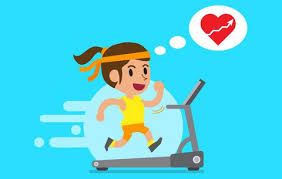Effective Exercising
Jul 18, 2019 • 6 views
Exercise is great for health but you need to follow some very simple rules to make it more effective. Given below are few dos and donts before, during and after exercise.

CHECKING YOUR VITALS
Checking your physiological vitals before performing any exercise is extremely important. A quick check of your blood pressure, pulse rate and resting heart rate will ensure a smooth exercise regime.
WEAR LOOSE FITTING CLOTHES WHILE EXERCISING
You should not wear extremely tight garments which not only restrict your free movements during the exercise but also prevent the proper supply of oxygen containing blood to your exercising muscles. There are a variety of options to choose from but opt for that which breathes well, dries fast and remains in its shape without stretching.
DO NOT OVER TRAIN
Rest and recovery after exercise is of much significance to get the most out of your exercises. For maximum benefit at minimum injury risk at least a twenty four hour rest period after heavy muscle straining exercise is generally advised.
PROPER RELAXATION
Do not attempt to do any kind of high-intensity exercise if you are not properly relaxed or stressed out because of some reason. You need to detach yourself from your regular mundane work pressures or unpleasant thoughts and try to solicit a sense of inner peace and relaxation through meditative techniques and various relaxation music available. You can also practice gradual and deep breathing exercises to divert your mind from worldly matters and focus on yourhealthand fitness.
DO NOT DEHYDRATE
When exercising, body needs four to eight ounces of water every 20 minutes to replace water loss. If you become thirsty during a workout then you have already passed out that safe stage of hydration. Take fluids immediately. Coconut water works like a natural Gatorade and provides you with instant energy. It also assists in digestion, and because of its high fibre concentration, it helps in reducing the occurrence of acid reflux.
EAT MORE PROTEIN
Depending on your goals, you should be getting as much as 0.9 grams of protein per day per pound of body weight. If your plan is to maintain or lose weight, scale back your calories, not your protein. Otherwise, you can lose muscle mass.
DO STRETCH
After any kind of training, people tend to skip or avoid stretching out their tired muscles. They should realise that by avoiding this they are causing to themselves much harm for the future sessions. So, stretch your way to the next workout session. Stretching speeds up your recovery process.
